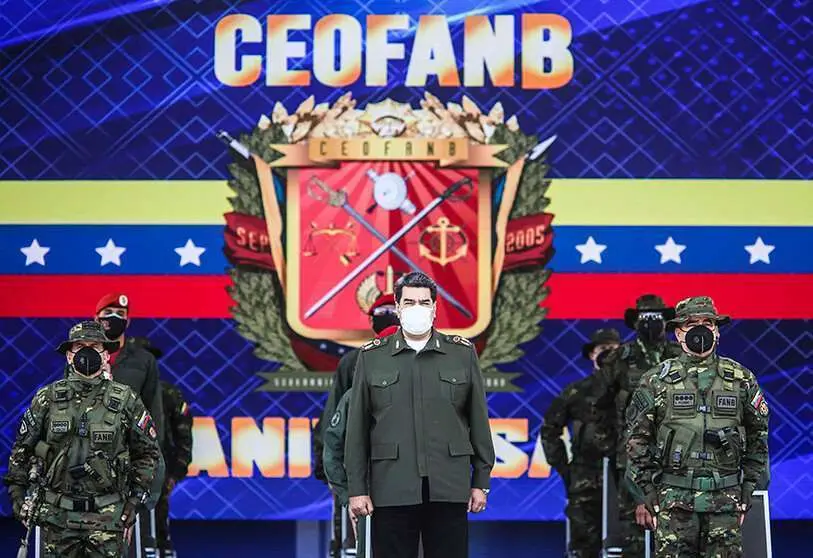Subjugating fractious Venezuelans through starvation

One thing that cannot be denied is the clarity of Venezuelan tyranny. The last message was delivered by Diosdado Cabello, who is considered number two in the regime and is still president of the Constituent Assembly, the legislative monster with an entirely Chavista composition set up to discredit the National Assembly. The latter should give way to the one to emerge from the 6 December elections, which are not recognised by the opposition to the regime and much of the international community and institutions.
Since Hugo Chávez was surprised to lose his first referendum, both he and his successor Nicolás Maduro have been increasingly clear about their intentions to remain in power forever, leaving the opposition only two options: to submit or to be arbitrarily deprived of their rights and freedoms. In this vein, Diosdado Cabello has been even more enlightening: "Those who do not vote, do not eat," he said at a rally in Puerto Ordaz. In a Venezuela that already has 90% of its population living below the poverty line, this threat directly attacks the very guts of citizens who have become subjugated to a feudal power.
With a minimum wage in Venezuela of 1.2 million bolivars, equal to one euro per month ( you have read correctly, one euro per month), millions of families depend for their meagre livelihood on the food boxes provided by the Maduro government against the presentation of the so-called "carnet de la patria" (Homeland Card). This document makes it easier to receive these alms, but it requires additional obligations, such as attending demonstrations in favour of the regime or providing various services to the Chavista cause. These boxes, called CLAPS (acronym for Local Supply and Production Committees), have several gradations, but in no case are they sufficient to maintain a basic amount of food and nutrients for consumers. It is not in vain that various bodies certify Venezuelans have lost on average twelve kilos of body weight since 2012.
Despite some attempts by the European Union and other institutions to get Maduro to postpone the elections "until such time as the circumstances for a truly democratic and verifiable consultation by international observers are in place", the regime has decided to step on the accelerator so that, in accordance with its own dictatorial legality, it can delegitimise the existence of the current National Assembly and consequently remove President Juan Guaidó, a position by virtue of which he is still recognised by some sixty countries as the president in charge of Venezuela.
The Chavista leadership believes that it is time to strike a definitive blow against an opposition that has at least achieved a strong media impact worldwide, despite some cracks in its unity of action. Pressure from the Donald Trump Administration has not succeeded in bringing down Nicolas Maduro, and he and his advisers believe that the change of tenant in the White House may change this policy of harassment. They do not forget that Joe Biden, as Barack Obama's vice-president, was an active part of the policy of thawing relations with Cuba, which led to the re-establishment of relations between Washington and Havana and to Obama's historic visit to the Cuban capital.
However, it remains to be seen whether Biden will repeat a policy towards Cuba and Venezuela from which he only obtained a hardening of the respective totalitarian regimes. Although he has not been much more precise about his intentions, he has been very specific in his qualifications: "Maduro is a dictator, it's that simple. A dictator who is causing unspeakable suffering to the people of Venezuela".
The two men already nominated as Biden's future Secretary of State and National Security Advisor, Anthony Blinken and Jacob Sullivan respectively, have maintained unambiguous support for the progressive sanctions applied by Donald Trump to the Chavista regime. Both surely share with their boss the advisability of modifying this pressure on Caracas somewhat by seeking formulas that ultimately lead to a negotiated solution. This would certainly not happen by allowing Maduro or Cabello to remain in power while they massacre the opposition, literally starve their citizens or drive them into forced exile, whose five and a half million members are also causing serious problems for integration and assimilation throughout the American continent, seriously impoverished by the pandemic.
Venezuela is exhausted. With an output of scarcely 400,000 barrels of crude-it produced an average of 1.6 million per day, a public debt of $175 billion (180% of GDP) and a population whose almost exclusive concern is to survive on a daily basis, it is nonetheless a country in which the Biden administration can erect a checkpoint against the ambitions of China and Russia in Ibero-America.

